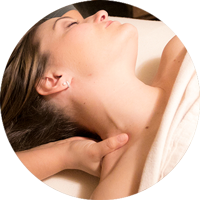Celebrations bring us together with loved ones, with beautiful traditions around food and drinks passed down from generation to generation. Some of these food traditions may be a little indulgent and may require some modification if we are focused on healthy eating.
Simply reducing the sugar or salt content of some recipes can make food a bit healthier. Being mindful of the types of fat or other ingredients used in a recipe can also change the nutritional profile of our end product for the better.
Here are some tips to help get ready for-and survive- a weekend of indulgence:
 Hydration
Hydration
- Most holiday meals come with sugary drinks, alcohol, or caffeinated drinks. The seasonings in some of our favorite holiday foods may be a little salty or too sugary, all of which can make it easy for the body to get dehydrated.
- It is very important to keep hydrated during the holidays, as this also helps the body to flush out waste products and help the body better regulate any excess calories from over indulgence.
 Finding the balance
Finding the balance
- Holiday dishes can be a combination of healthy food options and not-so healthy indulgent foods. Trying to keep a balance between the two can help the body better regulate some of the less nutritional food intake and excess calories, and help the body to find its balance.
- After the holidays, it’s even more important to increase a variety of fruits and vegetables in the diet, to provide the phytonutrients needed for healing the body. Phytonutrients are compounds found in plant sources, known to have a variety of health benefits such as regulating blood pressure, antioxidants, improved immune system, and protecting again chronic conditions.
- Increasing intake of fruits, vegetables, legumes, and grains can help the body recover and detox from indulgent holiday eating.
 Mindfulness
Mindfulness
- Mindful eating is a practice that helps with building a good relationship with food and being mindful how one’s body responds to foods we eat. Mindful eating during the holidays can help with self-regulating and prevent overeating.
- It is easy for holiday eating to turn into a social event and to lose track of our satiety cues. Paying attention to how the body responds to food intake can help us learn to stop eating when the body feels that it has had enough. Mindful eating can also help us avoid foods or ingredients that may not be as well tolerated
 Catching up with sleep
Catching up with sleep
- One of the holidays sins most of us are guilty of is staying up too late or not getting sleep at all. The body needs sleep and rest to recover from the day’s activities. When we miss sleep, one of the first things that is affected is our thinking. As a result, we’re less likely to be mindful eaters or make good decisions about our overall wellness.
- Part of recovering from holiday eating and the bustle that comes with it, is getting a good night rest and allowing the body to get the energy needed for the next day. Sleep helps to regulate a number of body functions including the immune and GI function. These two alone can cause issues with how we process food and regulate energy if we do not get the needed sleep. To help the body get back to its balanced state after holiday eating, we need to prioritize sleep.
 Don’t forget movement (physical activities)
Don’t forget movement (physical activities)
- Physical activity is an important part of overall wellness. Working out helps to rid the body of its waste products, strengthen the body, and increases blood flow. Increased blood flow helps to get oxygen and nutrients to different areas of the body, and this is what helps with the overall healing process.
About Kheko Lewis, MS, RD, LDN
Kheko Lewis, MS, RD, LDN is a Licensed Dietitian Nutritionist at Aligned Modern Health. She graduated with a master’s degree in Nutrition from Dominican University and obtained her dietitian’s credentials in 2019. Kheko’s background and passions include community nutrition, public health, and clinical nutrition. In her practice, she focuses on healthy lifestyle changes and specializes in navigating plant-based nutrition.











